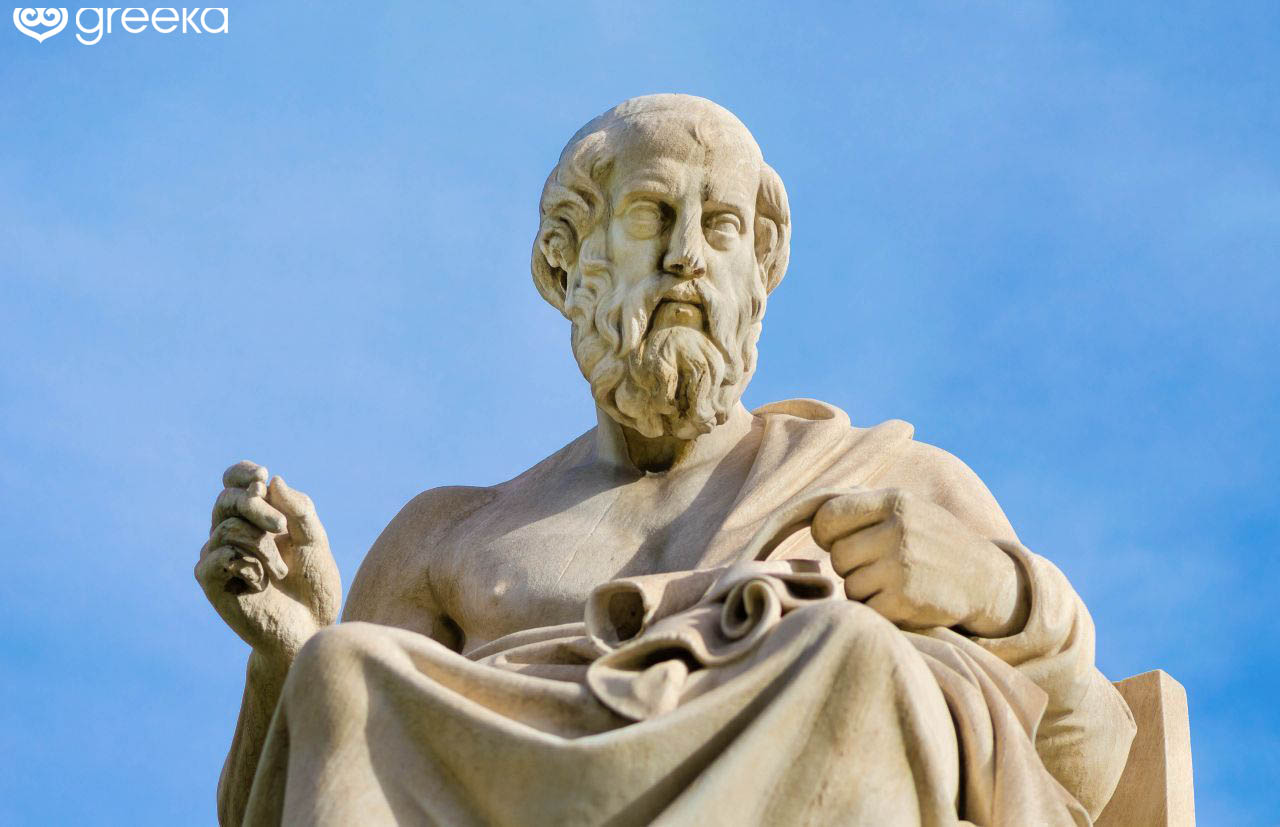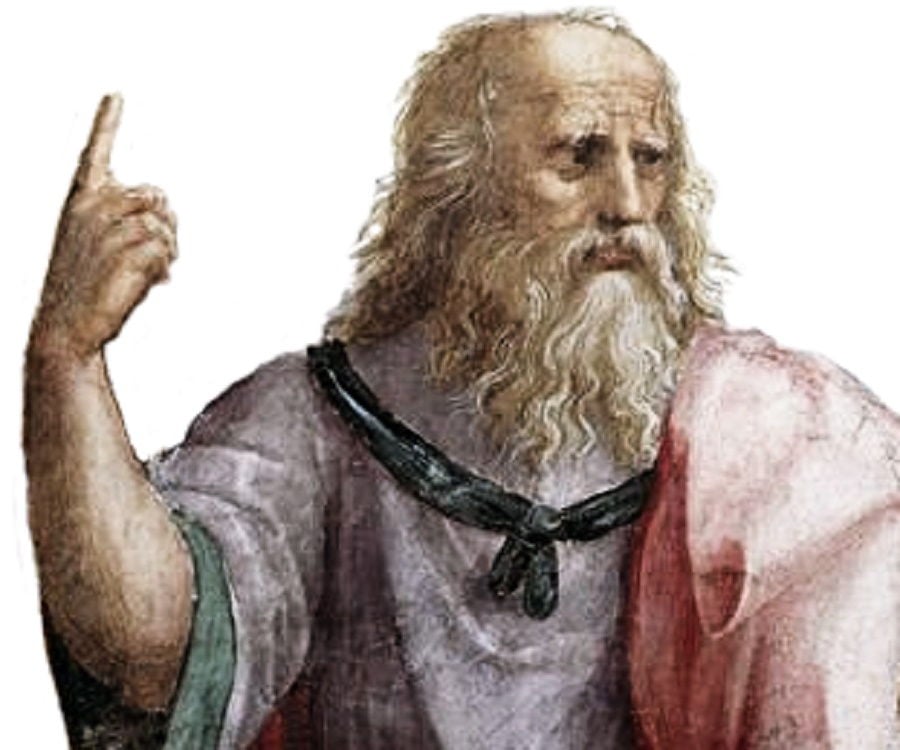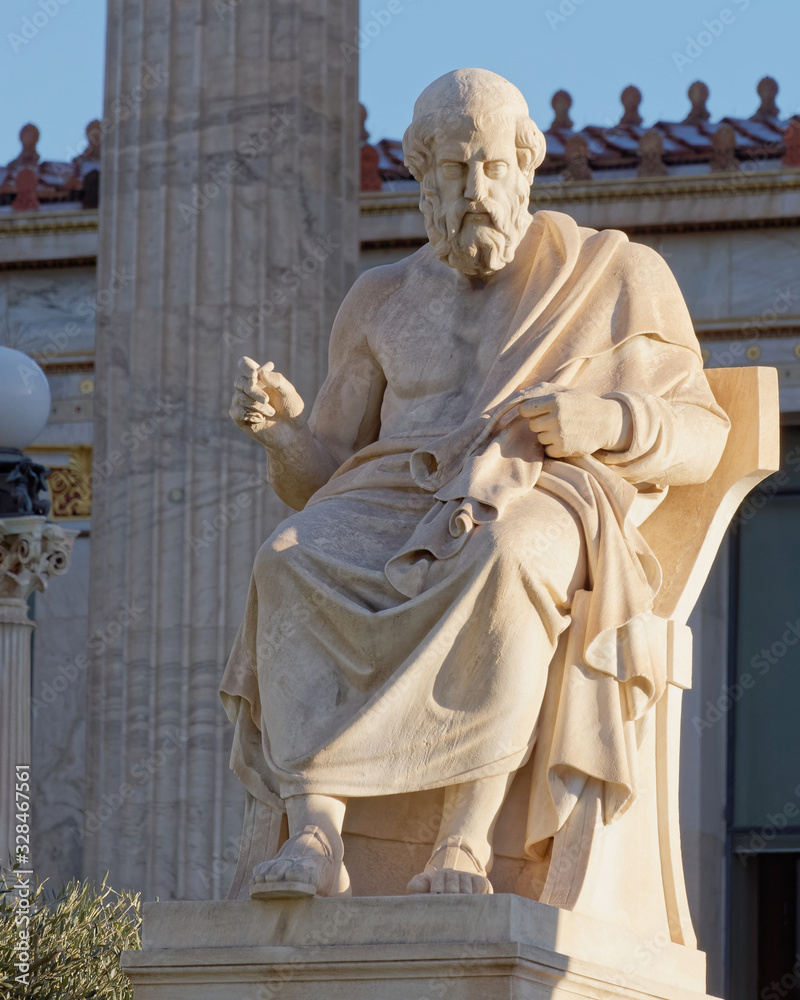When you think about the very roots of Western thought, one name often comes to mind, and that's Plato. He was, you know, an ancient Greek philosopher, someone whose ideas still echo through our world today. Born around 428 or 427 BCE in Athens, Greece, and passing away there in 348 or 347 BCE, his life's work truly shaped what we consider philosophy to be.
He was a student of Socrates, a truly significant figure in his own right, and later became a teacher to Aristotle, another giant in the history of ideas. This lineage, actually, makes him a central link in a chain of intellectual powerhouses. His writings weren't just simple notes; they were deep explorations into big ideas like what makes something fair, what beauty truly is, and what it means for everyone to be treated equally.
Plato also spent time discussing the nature of art and what we find pleasing to our senses, which we call aesthetics. His thinking, in some respects, gave us our very way of looking at philosophy itself – a rigorous way of trying to figure out the true situation of people, and the nature of everything around us. He's often called, you know, the inventor of philosophy as we understand it, which is a pretty big deal.
- Best Toner For Black Sensitive Skin
- Does Cocaine Make You Skinny
- Paula Deen Furniture Line
- Soda Boots Brown
- Blue Ivys Fashion Style
Table of Contents
- Plato Biography - A Life in Thought
- Who Was Plato, and Where Did He Come From?
- The Academy - A Hub for Plato Biography and Learning
- What Ideas Did Plato Explore in His Writings?
- The Theory of Forms - A Key Part of Plato Biography
- How Did Plato Influence Western Thinking?
- Plato Biography and His Later Thoughts on Ideal Societies
- What Can We Still Learn from Plato Today?
Plato Biography - A Life in Thought
Plato, whose birth name was likely Aristocles, was born into a rather well-off Athenian family, you know, one with connections to the city's old aristocracy. His early life, like, would have been during a time of great upheaval for Athens, with the Peloponnesian War winding down and political changes happening all over. This background, perhaps, played a part in his later thoughts on how societies should be run and what makes for a good government.
His connection to Socrates is, in a way, one of the most important parts of his life story. Plato became a devoted follower of Socrates, absorbing his teacher's method of questioning and his relentless pursuit of truth. The way Socrates would engage people in conversation, leading them to examine their own beliefs, really shaped Plato's approach to philosophy and his decision to write in dialogues, which is pretty much how we know his work today.
After Socrates' death, which was a deeply troubling event for Plato, he left Athens for a time. He traveled, apparently, to places like Sicily, gaining new perspectives and perhaps refining his own thoughts. These travels, you know, are a bit of a mystery in some respects, but they surely added to his breadth of experience before he returned to Athens to establish his own school.
- Coolest Persian Names
- Kc Chiefs Winter Coat
- Dog License Multnomah County
- Medieval Wedding Guest Attire
- Muddy Lotus Energy Healing
Who Was Plato, and Where Did He Come From?
Plato was, to be honest, a person of Athens, Greece, born there and passing away in the same city. His full life spanned a good portion of the 4th century BCE. He lived through a period when Athens was still a powerhouse of culture and ideas, even after some difficult times. His origins in this vibrant city, like, certainly contributed to his deep interest in how people should live together and how a city should govern itself.
His family connections were, you know, pretty significant. His mother, Perictione, was related to Solon, a famous lawgiver, and his father, Ariston, traced his lineage back to the kings of Athens. This background gave him a unique perspective on political life and the workings of the city, which you can really see reflected in his writings about ideal states and justice. He was, in a way, born into the heart of Athenian intellectual and political life.
The philosophical journey of Plato, you know, really began with Socrates. Before meeting Socrates, Plato might have considered a political career, as was common for young men of his standing. However, the influence of his teacher changed his path completely, leading him to dedicate his life to deep thinking and teaching. It's almost as if he found his true calling through that connection, which is pretty cool.
Personal Details and Bio Data of Plato
| Detail | Information |
|---|---|
| Born | 428/427 BCE |
| Birthplace | Athens, Greece |
| Died | 348/347 BCE |
| Place of Death | Athens, Greece |
| Known For | Ancient Greek philosopher, student of Socrates, teacher of Aristotle, founder of the Academy, author of influential philosophical works, Theory of Forms. |
| Key Ideas Explored | Justice, beauty, equality, aesthetics, metaphysics, ethics, political theory, the ideal state. |
| Notable Works | "The Republic," "The Laws," "Apology," "Phaedo," "Symposium." |
| Influence | Foundational to Western philosophy, shaping rigorous thinking about humanity and the universe. |
The Academy - A Hub for Plato Biography and Learning
One of Plato's most lasting contributions, you know, was the founding of the Academy in Athens. This wasn't just any school; it was, in a way, one of the very first institutions of higher learning in the Western world. Imagine a place where people could come together to discuss big ideas, to think deeply about the nature of things, and to learn from one another. That's what the Academy was all about, more or less.
The Academy, which was established around 387 BCE, became a central spot for intellectual life. People from all over would come to study there, not just philosophy, but also mathematics, astronomy, and even early forms of political science. It was, basically, a place where minds could grow and where the pursuit of knowledge was truly celebrated. Plato's own experiences, like, informed the way he structured this learning environment.
The influence of the Academy, to be honest, stretched for centuries after Plato's time. It continued to operate for nearly 900 years, which is an incredibly long run for any institution. This speaks volumes about the enduring impact of Plato's vision for a place dedicated to rigorous thinking and the systematic search for truth. It was, you know, a place where the seeds of future philosophical thought were planted and nurtured.
What Ideas Did Plato Explore in His Writings?
Plato's writings are, you know, a treasure trove of deep thinking. He explored so many different subjects, always with a conversational style, mostly through dialogues where characters debate various points. He spent a lot of time thinking about what justice truly means, not just for individuals, but for entire societies. This was a core interest, really, for much of his work.
He also spent a good deal of time discussing the nature of beauty and what makes something beautiful. Is beauty just in the eye of the beholder, or is there something more universal about it? These were questions he grappled with, and his thoughts on aesthetics were quite groundbreaking for his time. He was, in a way, trying to get to the bottom of what makes things appealing to us.
Beyond that, Plato also thought deeply about equality. What does it mean for people to be equal? How should a society treat its members to ensure fairness? These are questions that, you know, are still very much relevant today. His writings, you could say, laid some of the groundwork for later discussions on human rights and social structures, which is pretty remarkable.
He also touched upon the very idea of what philosophy is. For Plato, it wasn't just about random thoughts; it was about rigorous thinking, a disciplined way of looking at the true situation of humanity and the entire universe. This kind of systematic approach, in some respects, is why he's often seen as the one who really got philosophy going in a formal sense.
The Theory of Forms - A Key Part of Plato Biography
Perhaps Plato's most famous contribution to thinking, you know, is his Theory of Forms, sometimes called the Theory of Ideas. This is a bit of a tricky concept, but it's pretty central to understanding his philosophy. Basically, Plato suggested that beyond the physical world we see and touch, there's another, higher realm of perfect, unchanging "Forms" or "Ideas."
Imagine, for a moment, a perfect circle. You can draw circles, but none of them are truly perfect; they all have tiny imperfections. Plato would say that the perfect circle exists not in our physical world, but as a pure Form in this other realm. All the imperfect circles we see are just reflections or copies of that one perfect Form. This idea, to be honest, was his way of trying to solve what's known as the "problem of universals."
The "problem of universals" basically asks how different individual things can share a common quality. For example, how can many different chairs all be "chairs"? Plato's answer was that they all participate in the Form of "Chairness." This theory, you know, had a huge impact on how people thought about reality, knowledge, and even ethics. It's a pretty foundational concept in Western thought, actually.
This concept of Forms, in a way, provided a framework for understanding how we can have knowledge about things that seem to change all the time. If there are unchanging, perfect Forms, then our knowledge can be about these stable realities, rather than just the fleeting things we experience with our senses. It was, you know, a truly groundbreaking way to think about the world and our place in it.
How Did Plato Influence Western Thinking?
The influence of Plato on Western thought is, you know, really immense. It's hard to overstate just how much his ideas have shaped everything from how we think about government to what we believe about the human spirit. His writings are considered foundational, meaning they are the very basis for so much that came after him. He was, basically, a cornerstone of intellectual development.
His dialogues, which are the main way we have his ideas, have been studied and debated for thousands of years. They cover a wide range of subjects, from the deep questions of metaphysics – what reality truly is – to ethics, which is about how we should live our lives. And, of course, his thoughts on political theory, about how societies should be organized, have been incredibly impactful. People, like, still argue about his ideal state even today.
Plato, along with his teacher Socrates, remains one of the most important Greek philosophers from ancient times. Their combined influence, you know, is like a massive river that has branched out into countless streams, watering different areas of human thought. His school of thought, even now, continues to influence a great many people, showing just how powerful his ideas truly are.
The very way we conceive of philosophy today – as a rigorous process of thinking about the true situation of humanity and the nature of the whole universe – owes a lot to Plato. He gave us a framework, in some respects, for asking big questions and trying to find systematic answers. His works, to be honest, are of unparalleled influence, truly shaping the course of intellectual history.
Plato Biography and His Later Thoughts on Ideal Societies
While "The Republic" is perhaps his most famous work where he sketches out an ideal state, Plato's final dialogue, called "The Laws," shows a slightly different way of thinking. In "The Laws," he seems to, you know, pull back a little from the pure, theoretical ideas he presented in "The Republic." It's almost as if he recognized that real-world situations are a bit more complicated.
In this later work, Plato suggests that not only wisdom, but also experience and history, should inform how an ideal society is run. This is a pretty significant shift, you know, showing a more practical side to his thinking. He acknowledges that the lessons learned from the past and the realities of human nature play a role in creating a good society, rather than just relying on abstract philosophical principles alone.
This change in perspective, in a way, makes "The Laws" a fascinating read for anyone interested in the development of Plato's ideas. It shows a philosopher who continued to refine his thoughts throughout his life, adapting his theories to account for the complexities of human existence. It's a reminder that even the greatest thinkers, like, continue to learn and evolve their views.
What Can We Still Learn from Plato Today?
Even though Plato lived thousands of years ago, his writings still offer so much for us to think about today. His discussions on justice, for example, are still very relevant when we talk about how our legal systems work or how we should distribute resources in society. He was, you know, really getting at some timeless questions about what makes a society fair and good.
His ideas about the ideal state, even if they seem a bit far-fetched sometimes, still make us consider what kind of government is truly best for people. They push us to think about the roles of leaders, the importance of education, and how citizens should participate in their communities. These are questions that, to be honest, societies all over the world continue to grapple with.
Beyond politics, Plato's exploration of beauty, truth, and the nature of reality continues to inspire artists, scientists, and philosophers alike. His emphasis on rigorous thinking and asking fundamental questions encourages us to look beyond the surface and seek deeper meaning in our lives. He basically taught us how to think, which is a pretty powerful legacy, wouldn't you say?
His influence on Western philosophy is, you know, truly unparalleled. From metaphysics, which is the study of what's real, to ethics, which is about right and wrong, and political theory, his dialogues and teachings are foundational. Exploring his life, his impact on thinking, and his key ideas on justice and the ideal state can still offer us fresh insights, which is pretty cool.
Related Resources:



Detail Author:
- Name : Prof. Jonas Ullrich
- Username : ylangworth
- Email : chelsey.klocko@hotmail.com
- Birthdate : 1984-11-21
- Address : 2446 Alta Drive Suite 221 Gaylordmouth, NM 05993
- Phone : +1-256-293-2887
- Company : Osinski, Gutmann and Gulgowski
- Job : Data Processing Equipment Repairer
- Bio : Reprehenderit molestiae amet aut vel. Consequatur iusto nobis quae mollitia cum. Cum exercitationem dolores vel neque deserunt qui aliquam. Occaecati maiores aut distinctio.
Socials
facebook:
- url : https://facebook.com/ally_johnston
- username : ally_johnston
- bio : Vitae quia soluta repellat ut.
- followers : 6317
- following : 469
instagram:
- url : https://instagram.com/allyjohnston
- username : allyjohnston
- bio : Ut in ad temporibus totam. Et molestiae sunt expedita. Vel distinctio et quia beatae.
- followers : 322
- following : 439
linkedin:
- url : https://linkedin.com/in/johnston1994
- username : johnston1994
- bio : Rerum expedita magnam modi beatae ea eum.
- followers : 6044
- following : 557
twitter:
- url : https://twitter.com/allyjohnston
- username : allyjohnston
- bio : Ad omnis id dicta omnis quod maiores dolores. Rerum similique deleniti itaque fuga quisquam praesentium. Quia autem a nihil ut.
- followers : 3198
- following : 1472
tiktok:
- url : https://tiktok.com/@ally4695
- username : ally4695
- bio : Omnis sed dolores quis ut est consequatur tempore.
- followers : 3361
- following : 428